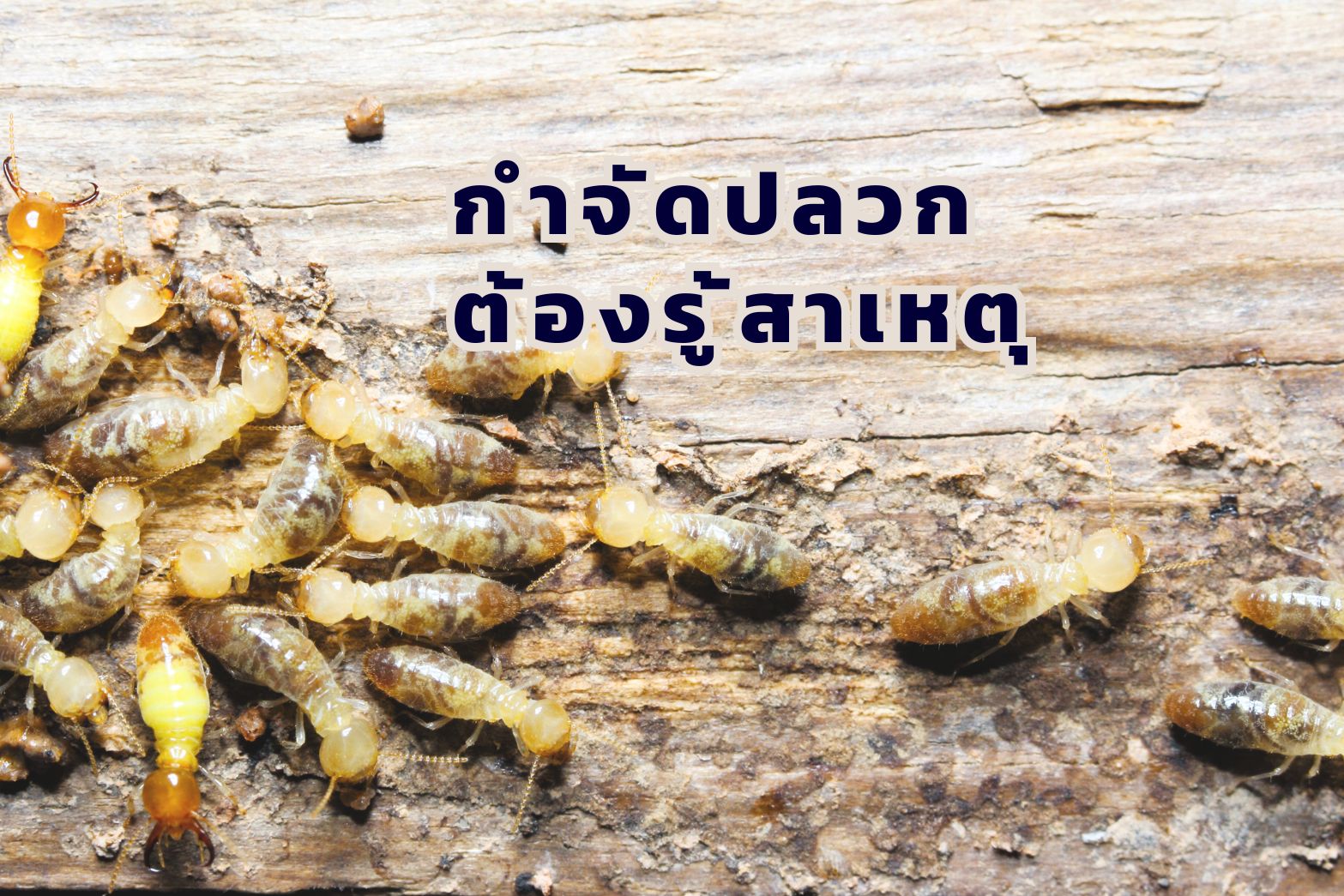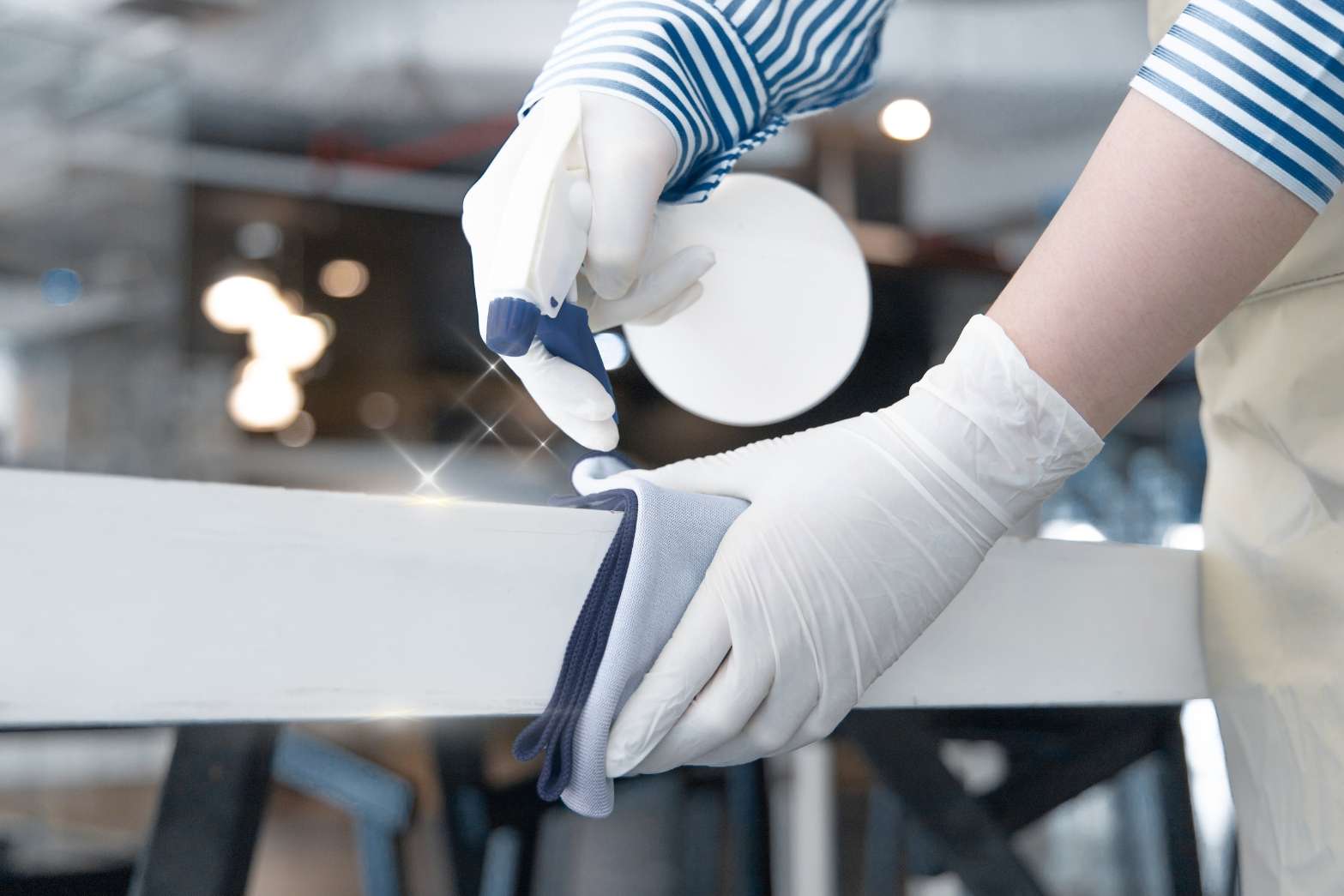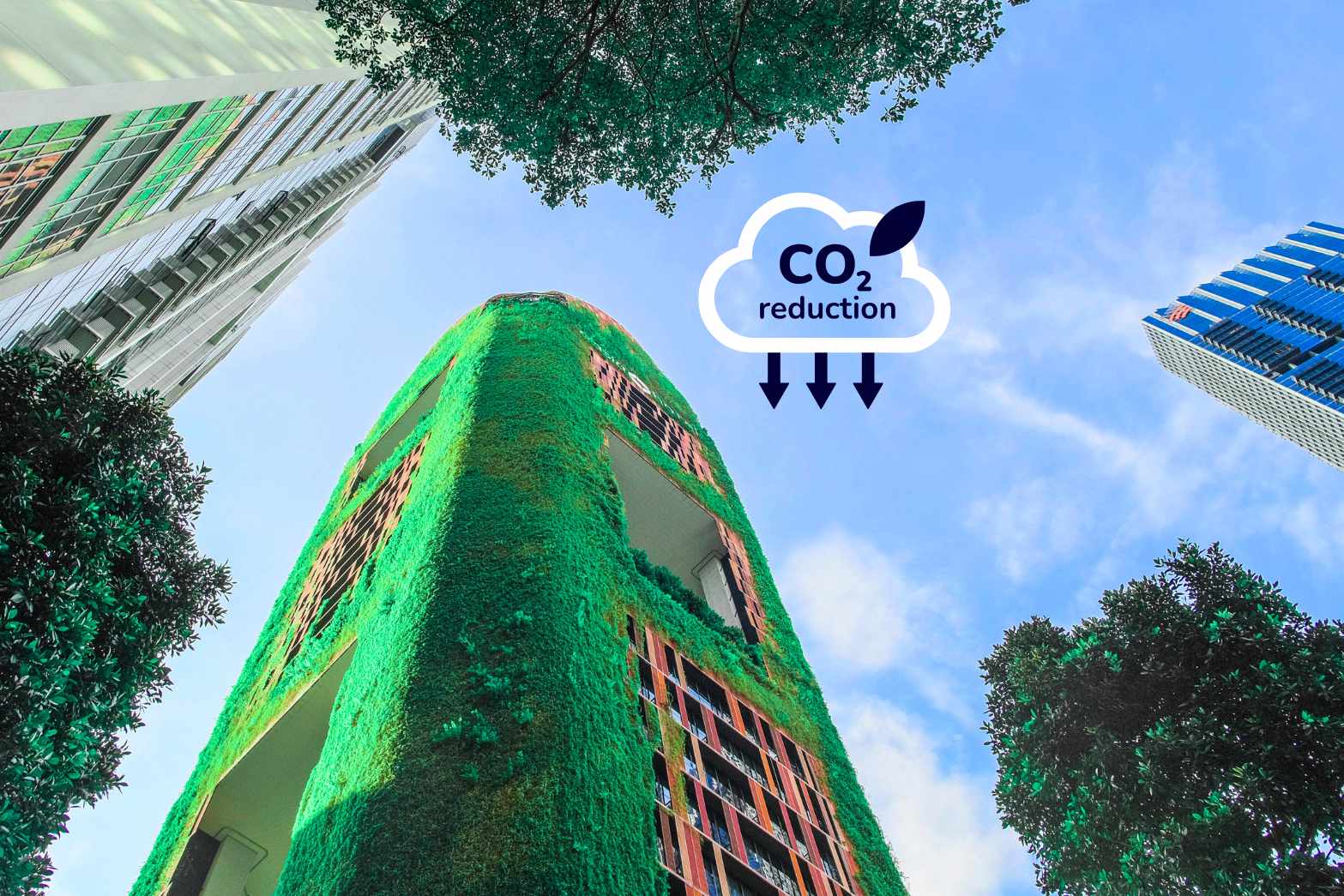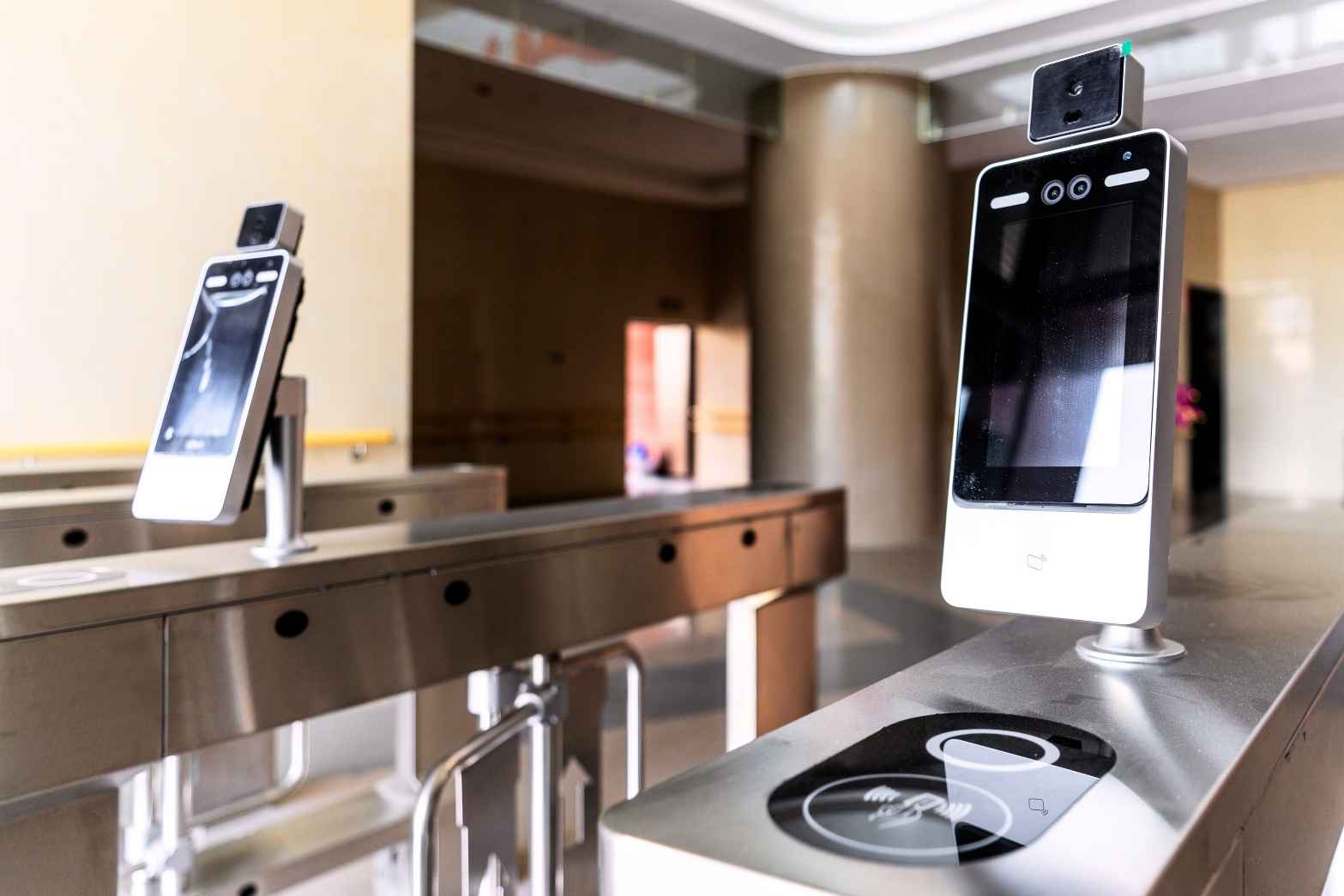Termites are wood-eating insects. While there are over 2,000 species worldwide, about 90 are found in Thailand. Drywood termites and subterranean termites are the most destructive to buildings and wooden furniture.
Termites are social insects that live in colonies and have a caste system consisting of three groups:
- Soldier termites: These wingless, blind, and sterile termites defend the colony. They have large heads and powerful jaws to protect the nest.
- Worker termites: Wingless, blind, and sterile, worker termites perform all labor within the colony, including feeding the young, foraging for food, and maintaining the nest. They are the most numerous castes and are the ones that cause damage to wooden structures.
- Reproductive termites: Also known as king and queen termites, they are responsible for reproduction and colony expansion.
To prevent termites from establishing a colony in your homes or buildings, it’s crucial to understand the root causes of termite infestations. This knowledge enables us to implement targeted prevention and eradication measures. Typically, there are three primary factors that attract termites to buildings.
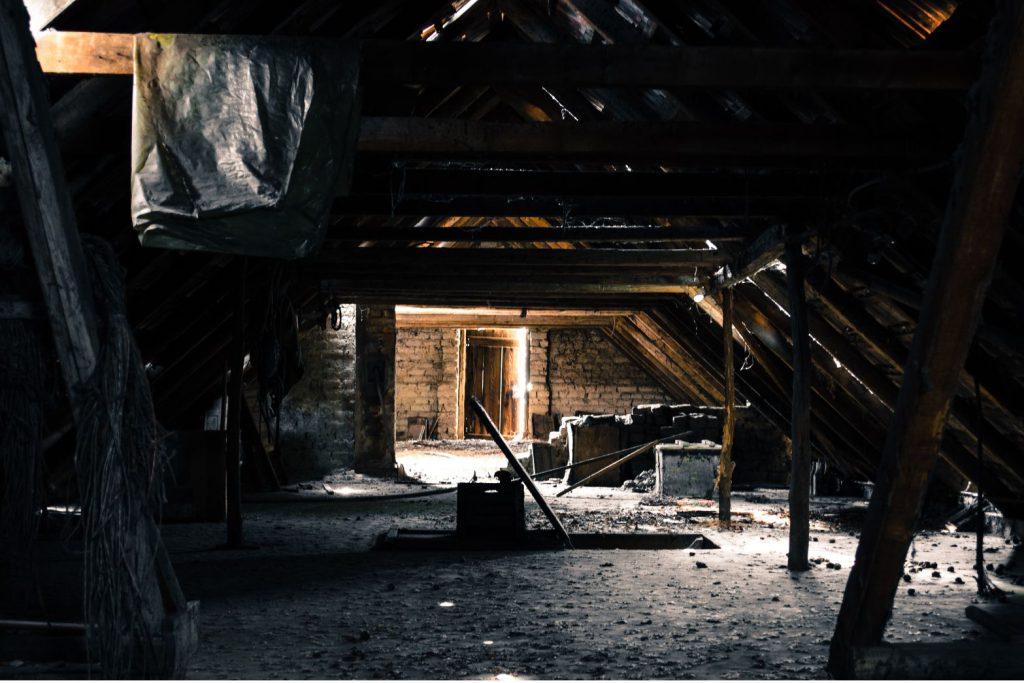
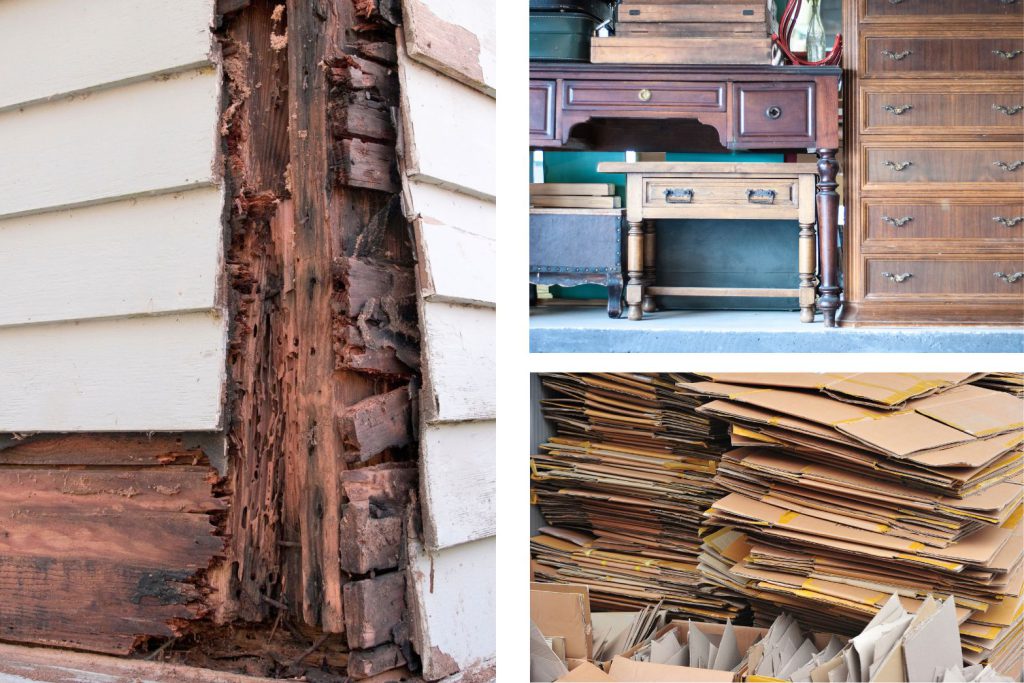
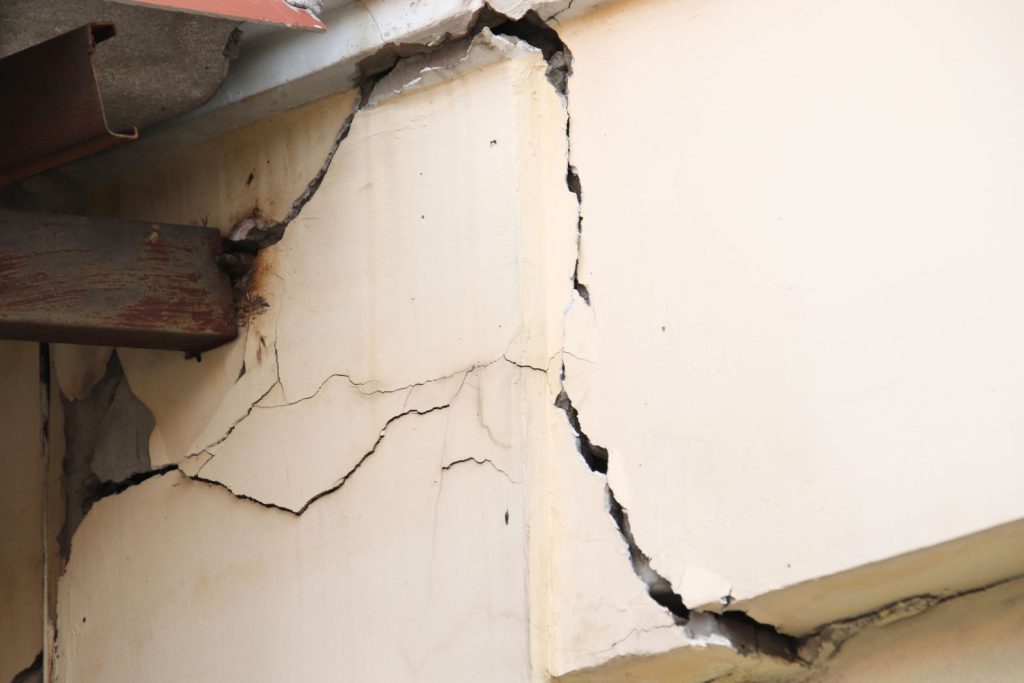
- Moisture and darkness: Termites prefer dark, damp environments. Areas in buildings that are damp and poorly lit are ideal for termite colonies.
- Wood: Termites are attracted to wood, wooden furniture and paper because of their high cellulose content. Unused boxes or stacks of paper can draw termites.
- Cracks and crevices: Termites may tunnel through cracks or crevices in buildings to transport food back to the nest.
Prevention and Control
The best prevention is to eliminate the factors that draw termites. This involves ensuring good ventilation and lighting in the building to reduce humidity, applying termite repellent to wooden furniture, and sealing cracks and holes in the walls. However, if a termite infestation has already occurred, it is necessary to find a suitable method to eliminate them. This can be done either by DIY methods or by hiring professionals from a pest control company.
DIY termite control methods
- Salt: Make salty water by mixing equal parts salt and warm water. Sprinkle salty water on the affected areas. This solution will dehydrate the termites infesting your building and kill them eventually
- Vinegar: Combine vinegar, lemon juice, and essential oil. Spray the mixture to areas where the termite swarm is often found.
- Dish soap: Mix dish soap with water and directly spray on termites. The soap will coats their bodies and suffocate them.
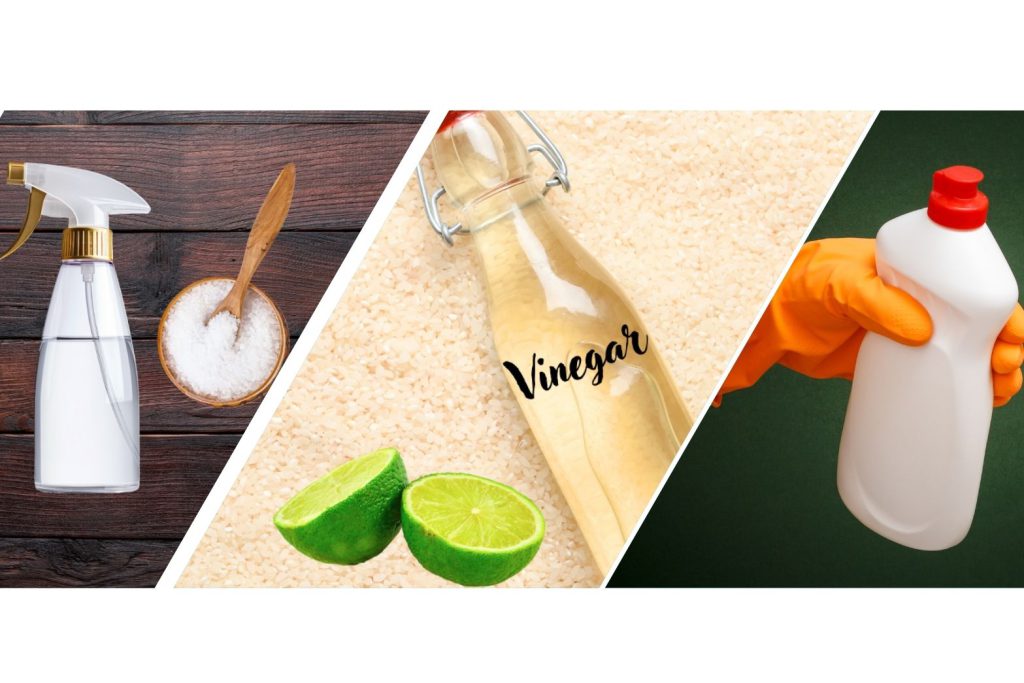
Professional termite control
Since natural methods require frequent application to prevent termites from returning, long-term termite control and prevention by professionals is a convenient and safe alternative. Their experienced team can accurately analyze the root cause of the problem and develop a targeted termite elimination plan
Termite Treatment Process by IFS Pest Control
- Site Inspection and Assessment: A thorough inspection of the affected area is conducted to identify the extent of the termite infestation. The type of termite species is determined to select the most effective treatment method.
- Treatment Plan Development: A customized treatment plan is created, incorporating at least two different treatment methods to ensure comprehensive termite elimination.
- Treatment Implementation: The treatment plan is executed, using appropriate techniques and products to target the termites and their colony.
- Monitoring and Evaluation: Regular monitoring is conducted to assess the effectiveness of the treatment and make any necessary adjustments.
Benefits of hiring a professional
- Experienced Team: Our team boasts over 30 years of experience in termite control, ensuring expert knowledge and skill.
- Quality Products: We use high-quality, standardized products that are safe for both humans and pets.
- Prompt Service: In case of any issues, our team is ready to assist within 48 hours.
- Regular Maintenance: We provide monthly follow-up services to ensure ongoing protection
By eliminating termites and other pests, we not only protect your buildings from damage but also ensure a safe and sanitary living environment for residents and guests.
For more information of IFS Pest Control Service, please contact
Call Center: 02 038 5188
Email: info@ifs-thailand.com
